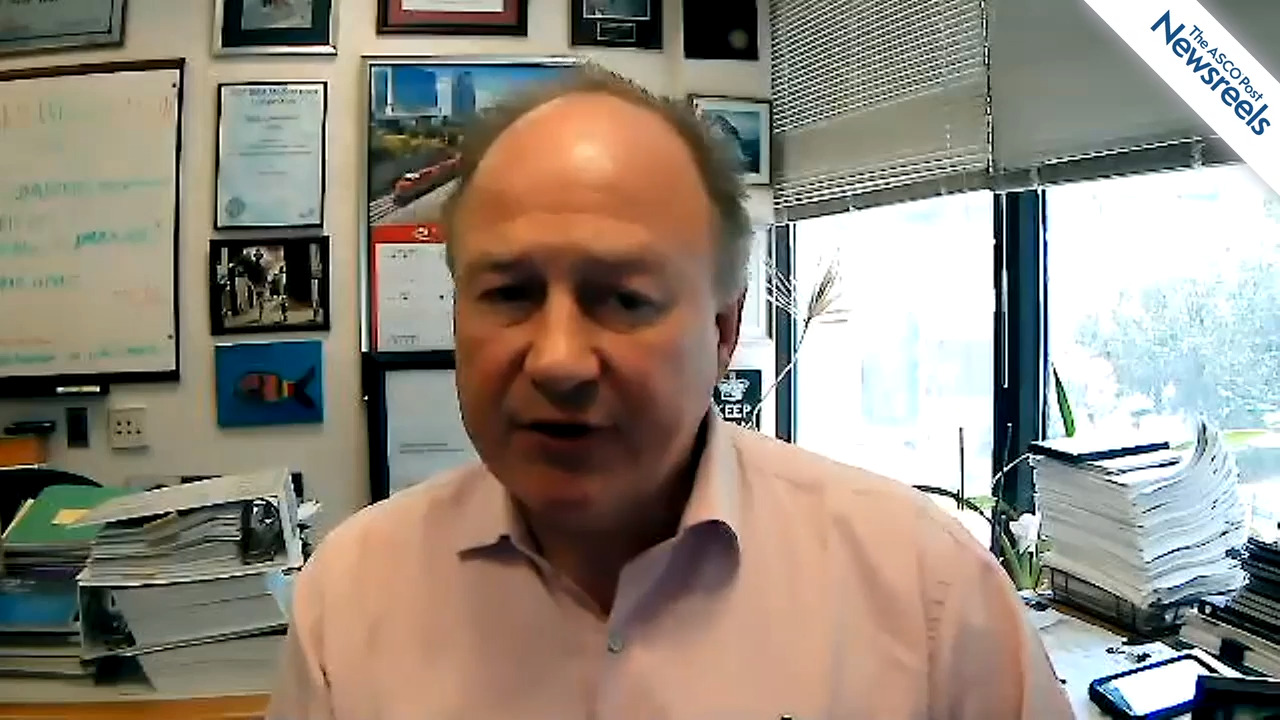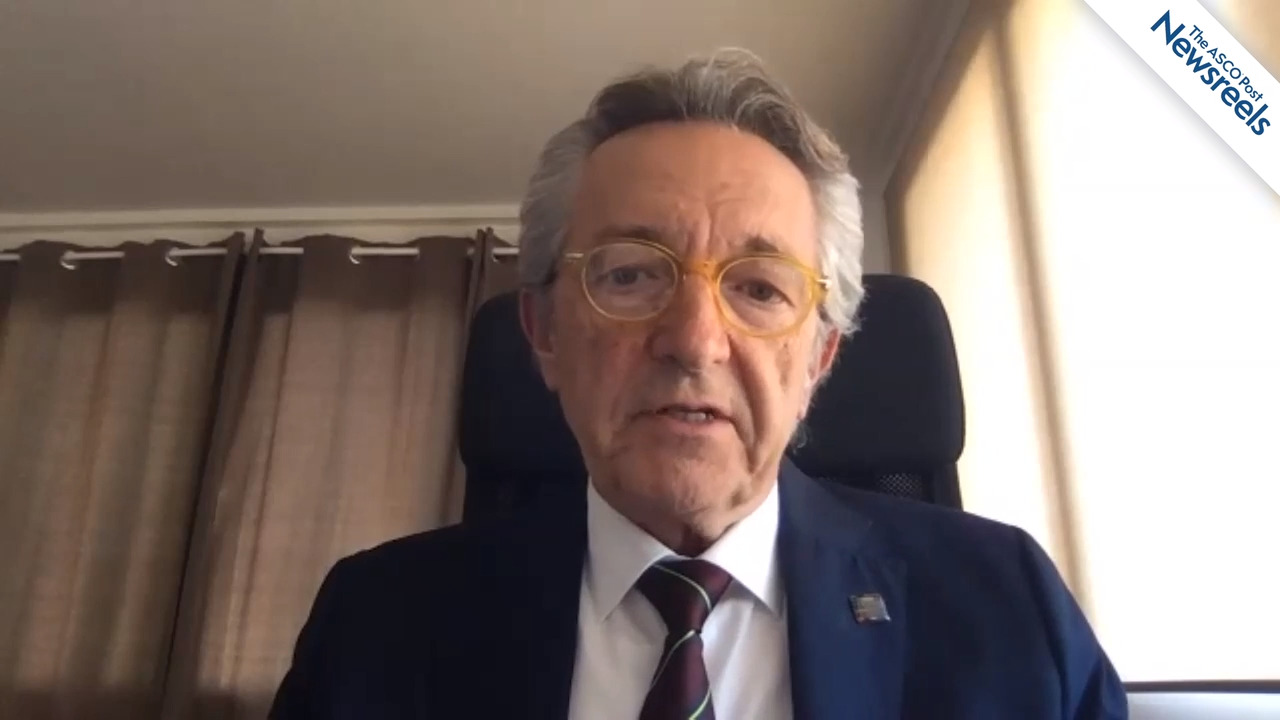Tingyan Shi, MD, PhD, on Ovarian Cancer: Secondary Cytoreductive Surgery for Recurrent Disease
ASCO20 Virtual Scientific Program
Tingyan Shi, MD, PhD, of Zhongshan Hospital, Fudan University, discusses study results that showed secondary cytoreductive surgery in selected patients extended progression-free survival and might contribute to long-term survival (Abstract 6001).
The ASCO Post Staff
Paul G. Richardson, MD, of Dana-Farber Cancer Institute, discusses early results on a cereblon E3 ligase modulator agent combined with dexamethasone in patients with relapsed or refractory multiple myeloma, with an overall response rate of 48%. The study is ongoing to further optimize dose and schedule (Abstract 8500).
The ASCO Post Staff
Andres Poveda, MD, of Initia Oncology, discusses phase III results from the SOLO2 trial, which showed that, compared with placebo, maintenance olaparib improved median overall survival by 12.9 months in patients with platinum-sensitive, relapsed ovarian cancer and a BRCA mutation (Abstract 6002).
The ASCO Post Staff
Egbert F. Smit, MD, PhD, of the Netherlands Cancer Institute, discusses interim results from the DESTINY-Lung01 trial of fam-trastuzumab deruxtecan in patients with HER2-mutated metastatic non–small cell lung cancer. The data show clinical activity with high overall response rates and durable responses (Abstract 9504).
The ASCO Post Staff
Alberto F. Sobrero, MD, of the Ospedale San Martino, discusses final results of the IDEA study, which supported the use of 3 months of adjuvant CAPOX, vs 6 months, for most patients with stage III colon cancer. The shorter treatment duration reduced toxicity, inconvenience, and cost (Abstract 4004).
The ASCO Post Staff
Mikkael A. Sekeres, MD, of the Cleveland Clinic, discusses data from a phase II study of pevonedistat plus azacitidine vs azacitidine alone in patients with higher-risk myelodysplastic syndromes, chronic myelomonocytic leukemia, or low-blast acute myeloid leukemia (Abstract 7506).





